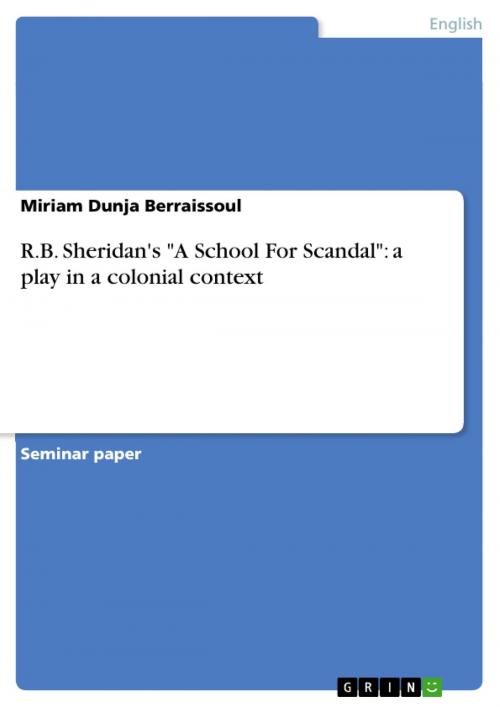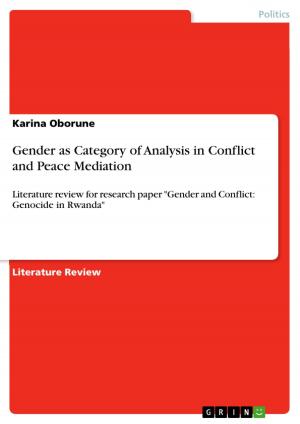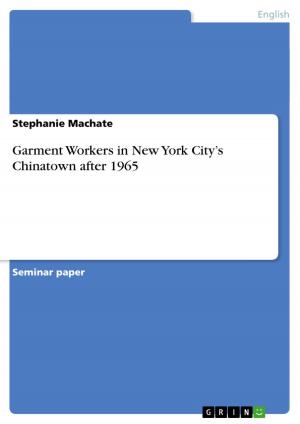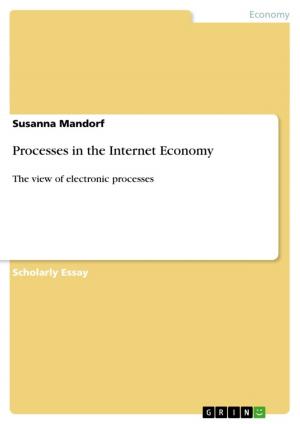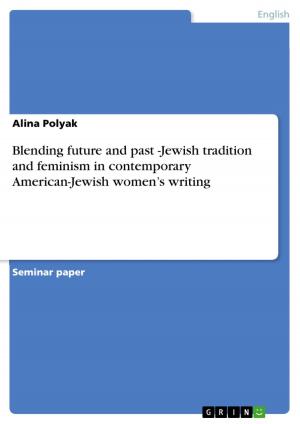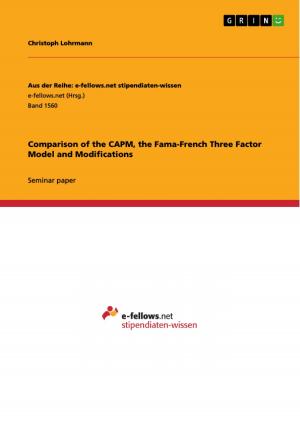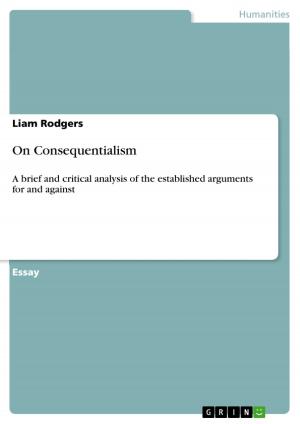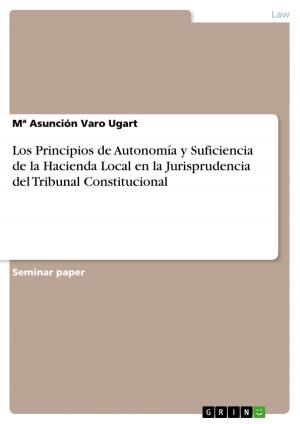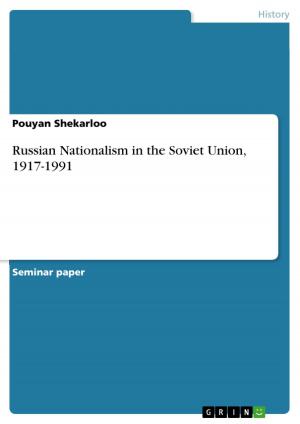R.B. Sheridan's 'A School For Scandal': a play in a colonial context
Fiction & Literature, Literary Theory & Criticism, British| Author: | Miriam Dunja Berraissoul | ISBN: | 9783640162185 |
| Publisher: | GRIN Publishing | Publication: | September 11, 2008 |
| Imprint: | GRIN Publishing | Language: | English |
| Author: | Miriam Dunja Berraissoul |
| ISBN: | 9783640162185 |
| Publisher: | GRIN Publishing |
| Publication: | September 11, 2008 |
| Imprint: | GRIN Publishing |
| Language: | English |
Seminar paper from the year 2004 in the subject English Language and Literature Studies - Literature, grade: 2,0, Johannes Gutenberg University Mainz (Institut für Anglistik), course: Seminar, 13 entries in the bibliography, language: English, abstract: This paper shall analyse Richard Brinsley Sheridan`s play 'The School for Scandal'. This drama was first performed in 1776 in London's Drury Lane Theatre, and was a cultural part of the colonization process in India. The aim of the first chapter is to provide some background information about Sheridan and his time, and also serves to explain the role which the concept of the sentimental comedy played during the time it was first performed in London. The main focus here, however, is to explore the differences as well as the comparable elements with other comedy genres. The second chapter deals with the production of 'The School for Scandal' which was first performed in Calcutta in 1777. Here it seem appropriate to analise the motives behind the exportation of British culture into the colony and to find out more about the commercial as well as the cultural aspects. An important source of information in reference to this production is the Folger manuscript; a handwritten copy of the play complete with stage directions, which had been used at the New Playhouse in Calcutta. It is necessary to mention here that this Folger manuscript 'recovered' by Mita Choudhury, whose essay about the production of 'The School for Scandal' is the main source for the second part of this paper. The aim of this chapter however, is not to summarise her work, but rather to approach her argumentation critically. The last part of the paper deals with the question whether or not there is a connection between the play and the process of colonialism in Calcutta in terms of the production itself and its content. It also examines the part which colonialism plays within the drama, with regards to its moral and financial aspects.
Seminar paper from the year 2004 in the subject English Language and Literature Studies - Literature, grade: 2,0, Johannes Gutenberg University Mainz (Institut für Anglistik), course: Seminar, 13 entries in the bibliography, language: English, abstract: This paper shall analyse Richard Brinsley Sheridan`s play 'The School for Scandal'. This drama was first performed in 1776 in London's Drury Lane Theatre, and was a cultural part of the colonization process in India. The aim of the first chapter is to provide some background information about Sheridan and his time, and also serves to explain the role which the concept of the sentimental comedy played during the time it was first performed in London. The main focus here, however, is to explore the differences as well as the comparable elements with other comedy genres. The second chapter deals with the production of 'The School for Scandal' which was first performed in Calcutta in 1777. Here it seem appropriate to analise the motives behind the exportation of British culture into the colony and to find out more about the commercial as well as the cultural aspects. An important source of information in reference to this production is the Folger manuscript; a handwritten copy of the play complete with stage directions, which had been used at the New Playhouse in Calcutta. It is necessary to mention here that this Folger manuscript 'recovered' by Mita Choudhury, whose essay about the production of 'The School for Scandal' is the main source for the second part of this paper. The aim of this chapter however, is not to summarise her work, but rather to approach her argumentation critically. The last part of the paper deals with the question whether or not there is a connection between the play and the process of colonialism in Calcutta in terms of the production itself and its content. It also examines the part which colonialism plays within the drama, with regards to its moral and financial aspects.
